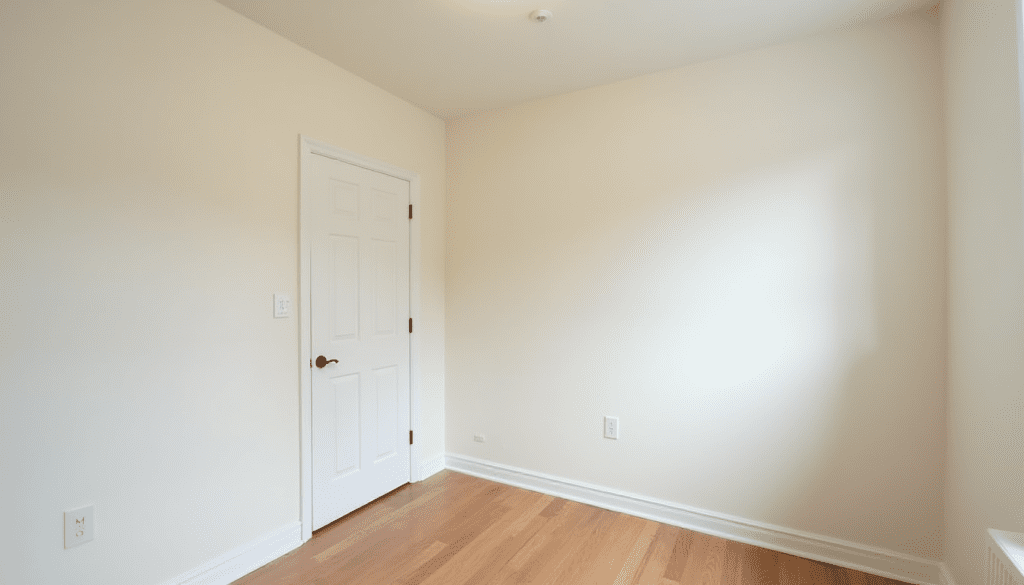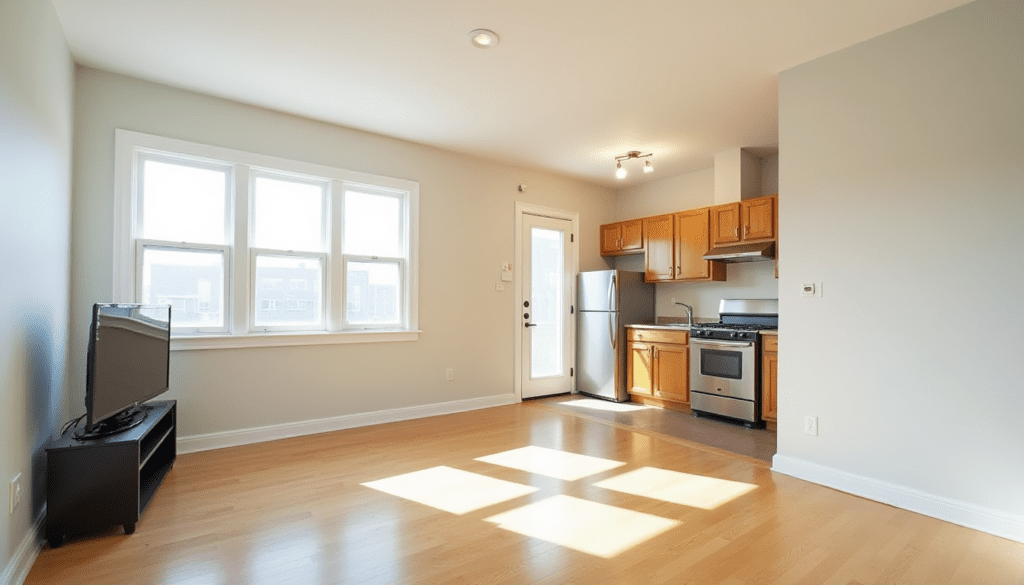Updated: October 30, 2025
The eviction process in Garfield, New Jersey—located within Bergen County—follows the same core steps as the statewide New Jersey eviction process timeline but often experiences local scheduling variations due to court backlogs and filing volume. Whether you’re a landlord seeking possession or a tenant trying to understand your rights, knowing the step-by-step eviction process timeline in NJ can save time, reduce legal mistakes, and help both sides navigate the system fairly.
Below, we’ll break down the New Jersey eviction process timeline specific to Garfield, including key stages such as notice periods, court filings, judgments, and warrants of removal. This guide aligns with official sources like the NJ Courts Landlord-Tenant Division and NJ Department of Community Affairs (DCA) eviction guide.
Understanding the eviction timeline isn’t just for landlords. Tenants can use this information to ensure they receive proper notice, understand their right to appear in court, and know when they may still be able to stop an eviction—especially in nonpayment cases where New Jersey law allows payment after judgment but before a lockout.
Who Handles Evictions in Garfield (Bergen County, NJ)
Eviction cases for Garfield are handled in the Bergen County Special Civil Part, Landlord-Tenant Section of the New Jersey Superior Court. This division manages residential eviction cases, rent collection, and landlord-tenant disputes. According to NJ Courts Special Civil Part resources, these matters are typically scheduled for hearing within several weeks of filing—depending on the local docket size.
All warrants of removal and lockouts in Garfield are carried out by Special Civil Part court officers under the supervision of the Bergen County Sheriff. Landlords are not permitted to perform “self-help” evictions such as changing locks or removing belongings. Doing so could violate the New Jersey Anti-Eviction Act (N.J.S.A. 2A:18-61.1 et seq.), which protects tenants from illegal removals.
Local Venue:
Bergen County Justice Center
10 Main Street, Hackensack, NJ 07601
Landlord-Tenant Division – Special Civil Part
Filing here ensures your case is managed under Bergen County jurisdiction, which covers Garfield and surrounding municipalities. The schedule may vary slightly compared to urban centers like Newark or Jersey City due to case volume, but the procedural timeline remains consistent statewide.
Legal Grounds for Eviction in New Jersey (Just-Cause Only)
New Jersey is one of the few states with strong tenant protection laws under the Anti-Eviction Act. This means that a landlord must have a just cause to evict, even after a lease expires. Common legal grounds include:
- Nonpayment of rent (most common cause)
- Substantial lease violations (property damage, nuisance, illegal activity)
- Repeated late payments after prior notices
- Holdover tenancy (tenant refuses to vacate after lawful notice)
- Owner occupancy or major building renovations (special circumstances)
Landlords must ensure their cause aligns with one of the legal grounds listed in N.J.S.A. 2A:18-61.1. Each cause has its own notice requirement and waiting period before filing. For example, a tenant accused of disorderly conduct must receive a Notice to Cease first, and only upon repeat behavior can the landlord issue a Notice to Quit.
Understanding these just-cause categories is essential because filing prematurely or for the wrong reason can result in the case being dismissed.
Required Notices & Waiting Periods (Notice to Cease / Notice to Quit)
The first formal step in any eviction process timeline in NJ is serving the correct notice to the tenant. These notices provide tenants with an opportunity to correct behavior or prepare to vacate before legal action is filed. There are two primary types:
Notice to Cease
A Notice to Cease serves as a written warning. It tells the tenant what lease violation occurred and demands that the behavior stop. It’s typically used for issues like noise complaints, unauthorized occupants, or habitual late payments. If the issue continues, a Notice to Quit may follow.
Notice to Quit
A Notice to Quit is required before filing most eviction complaints. It must specify the cause and the date by which the tenant must vacate. The timing varies based on the reason for eviction:
- Nonpayment of Rent: Notice may not be required before filing (N.J.S.A. 2A:18-61.2), though some landlords still provide one for clarity.
- Lease Violation or Disorderly Conduct: 3-day notice after prior Notice to Cease.
- Habitual Late Payment: 1-month notice after pattern established.
- Owner Use or Rehabilitation: 2-3 month notice depending on cause.
Accuracy here matters—improperly worded or served notices often result in the court dismissing the case, forcing the landlord to restart the process. According to NJ Courts, notices must clearly specify the grounds, date of termination, and be properly served (in person or via certified/regular mail).
For more detail on early-stage notices, you can review related guidance from RentShield’s article Understanding a 3-Day Notice to Pay or Quit in Plainfield, NJ, which outlines how timing and delivery requirements differ by city.
Filing the Case in Landlord-Tenant Court (Special Civil Part)
Once the notice period ends, landlords may file a complaint in the Special Civil Part (Landlord-Tenant Section) of the Superior Court. In Garfield, this is done at the Bergen County Justice Center. Filing includes the following components:
- Completed Landlord-Tenant Complaint form stating the reason for eviction and rent owed (if applicable).
- Payment of filing fees (currently around $50–$75 per unit).
- Proof of service for any required notices.
- Copy of the lease or written rental agreement.
After the complaint is filed, the court assigns a docket number and schedules a hearing—usually within two to four weeks, though high-volume counties can take longer. Both the landlord and tenant receive official notice of the court date.
The Service of Process step then begins, where the tenant must be formally notified of the case. The court clerk or authorized process server handles this step, ensuring delivery by mail or in person. Once served, the tenant must appear on the hearing date to present any defense. If the tenant fails to appear, the court may enter a default judgment for possession.
To minimize delays, landlords should double-check all paperwork for accuracy and keep evidence of rent ledgers, notice delivery, and lease terms. Missing or incorrect documents are among the top reasons eviction cases are rescheduled or dismissed in New Jersey.
For property owners who frequently encounter late payments, reviewing RentShield’s article Managing Tenants Who Consistently Pay Rent Late in East Orange, NJ provides helpful insights into prevention strategies and notice timing.
Once a complaint is filed and served, the eviction process in Garfield formally enters the court system—setting the stage for the hearing and possible Judgment for Possession, which will be covered in the next section of this guide.
Continue to Sections 6–10 for: Service of Process, Court Hearing, Judgment for Possession, Warrant of Removal, and Lockout Timing.
Disclaimer: This article includes legal timeframes and references current as of October 30, 2025. It is intended for informational purposes only and should not be taken as legal advice. Always consult a qualified New Jersey attorney or official court resources for guidance specific to your case.
Service of Process & Tenant Response Window
After the landlord files the eviction complaint in the Bergen County Special Civil Part, the next critical step in the New Jersey eviction process timeline is service of process. This ensures that the tenant is formally notified of the case and understands when to appear in court. Proper service is one of the most common areas where eviction filings can be delayed or dismissed, so following this procedure correctly is essential.
According to the NJ Courts Landlord-Tenant Division, the court itself typically handles mailing the summons and complaint to the tenant. The documents are sent by both certified and regular mail to the rental property address. In some cases, the court may also direct a Special Civil Part officer or process server to deliver the papers in person if mail service fails.
Once the tenant is served, they have the right to appear on the date listed in the summons. There is no separate written response required in most New Jersey eviction cases—the tenant’s in-person appearance serves as their defense opportunity. If the tenant does not appear, the judge may issue a default judgment for possession in favor of the landlord.
Service of process delays often occur when the tenant’s name or address on the complaint doesn’t match the lease, or when the landlord files without properly completing prior notice requirements. To avoid restarts, double-check every document for accuracy, including the Notice to Quit and lease information.
If the court finds that service was defective, the judge may order a new service attempt and reschedule the hearing, extending the total eviction timeline in Garfield, NJ by several weeks. Therefore, landlords should budget time for potential re-service and confirm all addresses match official property records.
For tenants, receiving the court summons does not automatically mean immediate eviction—it simply begins the hearing process. Tenants still have a right to attend court, present proof of rent payments, or request hardship relief under New Jersey’s Anti-Eviction Act.
Court Hearing: What Happens and Typical Scheduling
After the complaint is properly served, both landlord and tenant must appear at the Landlord-Tenant Court hearing. In Bergen County, these hearings take place at the Justice Center in Hackensack, typically in the morning session. The scheduling generally falls within two to four weeks after filing, although high-volume months can extend this timeframe.
At the hearing, the judge first calls the case list. Many disputes settle before trial through mediation—a court-sponsored process where both parties meet with a mediator to reach an agreement on payment or move-out terms. If settlement fails, the case proceeds to trial immediately.
The landlord must provide all required documentation, including:
- Signed lease or rental agreement
- Rent ledger showing missed payments
- Copy of all served notices (Notice to Cease, Notice to Quit, etc.)
- Proof of proper service (certified mail receipts or officer’s return)
- Any correspondence showing repeated lease violations
Judges in Garfield and Bergen County apply statewide rules: if the landlord proves a valid cause and proper notice, the judge will issue a Judgment for Possession. This does not immediately remove the tenant but formally transfers possession rights back to the landlord.
Tenants may raise defenses such as improper notice, landlord retaliation, unsafe living conditions, or proof of rent payments. If the tenant can show substantial compliance or landlord fault, the judge may dismiss or delay the case to allow corrections.
When judgment is entered, the case proceeds toward the warrant of removal—the legal document authorizing eviction. The warrant, however, can’t be issued immediately.
Judgment for Possession: What It Means for Both Sides
The Judgment for Possession is a key turning point in the New Jersey eviction process timeline. For landlords, it officially grants the legal right to regain possession of the rental unit. For tenants, it signals that the court found cause for removal but does not yet authorize a lockout.
Under NJ Courts guidelines, the judgment does not automatically end tenancy. The court must still issue a warrant of removal, and even then, tenants retain limited rights to stop the eviction through payment or hardship motions.
The judgment process works as follows:
- Judge signs the Judgment for Possession after the hearing.
- Case file is transferred to the court officer’s queue for warrant issuance.
- Tenant may file for hardship relief or request a short delay if serious medical, financial, or relocation hardship is proven.
- Landlord may then request a warrant of removal no sooner than three business days after judgment.
For tenants in nonpayment of rent cases, there’s an additional protection. Under N.J.S.A. 2A:42-10.16a, tenants have up to three business days after the warrant is posted to pay all rent due and court costs to stop the eviction. This “pay-and-stay” rule is unique to New Jersey and often saves tenants from displacement if payment can be made quickly.
For landlords, a judgment also establishes the legal record of tenant default, which can be used in future collection actions for unpaid rent or damages. However, landlords may not remove the tenant’s belongings or change locks until the warrant is executed by a court officer.
Warrant of Removal: Posting, Waiting Period, and Execution
The warrant of removal is the final enforcement step in the Garfield eviction timeline. This court-issued document authorizes a Special Civil Part court officer to remove the tenant and return possession to the landlord. However, strict timing rules apply to protect tenant rights.
According to New Jersey Court guidelines, the warrant may not be issued until at least three business days after the judgment for possession. Once issued, the officer will visit the rental property and post the warrant on the tenant’s door. This posting begins another three-business-day waiting period before the officer may return to complete the physical eviction.
During this period:
- Tenants in nonpayment cases can pay all rent and fees to halt the eviction.
- Tenants facing hardship may file an Orderly Removal motion to extend their move-out date (often 7–14 days).
- Landlords must wait until the officer completes the removal; they cannot take possession earlier.
The court officer will notify both parties of the scheduled lockout date. Once completed, the landlord regains legal possession and may change locks. Belongings left behind must be handled in accordance with N.J.S.A. 2A:18-72, which outlines notice procedures for abandoned property.
Overall, from filing to final lockout, the average eviction process in Garfield, NJ typically spans **six to ten weeks** for uncontested nonpayment cases, and longer for contested or lease-violation cases. Local court volume, notice compliance, and scheduling all influence this duration.
For landlords seeking smoother outcomes, preparing documents correctly, maintaining clear communication, and relying on experienced property management or legal assistance—like the professionals at RentShield Property Management—can significantly reduce delays and ensure compliance.
Continue to Sections 11–16 for: Typical Timelines, Common Delays, Local Considerations in Garfield, Tenant Protections, State Comparisons, and the Landlord-Tenant Checklist.
Disclaimer: This article contains general legal timeframes based on New Jersey state law and Garfield court practices current as of October 30, 2025. It is not legal advice. For specific guidance, consult a qualified attorney or visit official resources such as the NJ Courts Landlord-Tenant Help Center or NJ DCA Eviction Information.
Typical Timeline Scenarios (Nonpayment, Lease Breach, Holdover)
While every case in the New Jersey eviction process timeline is unique, most follow similar timing patterns depending on the reason for filing. In Garfield, NJ, these timelines can vary slightly depending on the volume of cases at the Bergen County Special Civil Part. Below are the most common examples and what landlords and tenants can expect at each stage.
Nonpayment of Rent (Fastest Case Type)
This is the most frequent cause of eviction and usually the fastest route to judgment since it may not require a formal Notice to Quit. Once rent becomes overdue and communication fails, landlords can proceed directly to filing.
- Day 1–5: Tenant misses rent payment.
- Day 6–10: Optional grace period or informal reminder (recommended).
- Day 10–14: Landlord files complaint with the Bergen County Special Civil Part.
- Week 3–5: Court hearing and judgment for possession issued.
- 3 business days later: Warrant of removal may be issued and posted.
- 3 business days after posting: Court officer executes eviction (tenant can still pay during this time).
Average duration: 4–6 weeks (uncontested). If the tenant pays all owed rent before the lockout, the case can be dismissed under New Jersey’s “pay-and-stay” rule.
Lease Violation or Disorderly Conduct
Evictions based on behavior or lease violations take longer because of the required Notice to Cease and Notice to Quit steps. These notices must be properly worded, served, and timed before a complaint is filed. Once the issue continues after the warning, the landlord can proceed to court.
- Week 1: Notice to Cease issued (documented violation).
- Week 2–3: Continued behavior or noncompliance observed.
- Week 4: Notice to Quit served (typically 3-day notice).
- Week 5: Complaint filed with court.
- Week 8–10: Hearing and potential judgment for possession.
- +1 week: Warrant issued, 3-day waiting period before removal.
Average duration: 8–10 weeks, sometimes longer if the tenant contests the complaint or requests mediation. Proper documentation of prior warnings, photos, or witness statements can strengthen a landlord’s case and avoid delays.
Holdover Tenancy (Staying Beyond Lease Expiration)
Holdover cases occur when a tenant remains in the property after the lease ends or a notice to vacate expires. These cases require a Notice to Quit specifying the final date of possession—usually at least one full rental period (30 days) for month-to-month tenants.
- 30 days before filing: Notice to Quit served, giving the tenant time to vacate.
- Day 31–35: Complaint filed if tenant remains.
- Week 6–8: Hearing and judgment for possession.
- Week 9: Warrant posting and removal (if no compliance).
Average duration: 8–9 weeks. These cases are slower because of the required 30-day notice and standard scheduling backlog in Bergen County.
For landlords with repeat late-payers, it’s wise to act early with proper notices rather than waiting for multiple months of delinquency. The RentShield blog Managing Tenants Who Consistently Pay Rent Late in Bloomfield, NJ explains proactive notice strategies and documentation tips.
Common Delays & How to Avoid Them (Docs, Service, Calendar Backlogs)
Even though New Jersey’s eviction laws provide structured timeframes, real-world factors often extend the process. In Garfield, most delays arise from missing documents, improper notice, or overloaded court calendars—issues that can easily add several weeks to an eviction case.
1. Improper or Missing Notices
Courts frequently dismiss cases when landlords file without the correct Notice to Cease or Notice to Quit wording or proof of service. Each notice must clearly state the cause, termination date, and delivery method. Using certified and regular mail together provides stronger evidence if challenged in court.
2. Errors in Court Filings
Simple mistakes—wrong address, missing signatures, or misdated rent ledgers—can trigger rescheduling. Always double-check the Landlord-Tenant Complaint form before submission.
3. Tenant Motions and Stays
Tenants may file motions for hardship stays or orderly removals, especially if they can prove medical, financial, or relocation challenges. Courts may grant these for 7–14 days.
4. Court Scheduling Delays
The Bergen County Special Civil Part handles a heavy caseload, particularly during summer and winter rent cycles. Backlogs can delay hearings or lockout scheduling. Landlords should file early in the month to improve scheduling chances.
5. Service of Process Failures
If mail service fails or the tenant’s address is incorrect, the court may order re-service, delaying hearings by 2–3 weeks. Always verify tenant mailing addresses match lease and payment records.
To prevent these issues, many property owners work with experienced management firms or eviction specialists familiar with local court procedures. Partnering with professionals like RentShield Property Management ensures filings are handled correctly and communication with court officers is streamlined.
Local Considerations for Garfield & Bergen County Cases
Evictions in Garfield follow statewide laws, but local nuances in the Bergen County Special Civil Part can influence scheduling and enforcement. Understanding these local practices helps both landlords and tenants anticipate the process.
- Hearing Days: Most landlord-tenant hearings in Bergen County occur on weekday mornings at the Hackensack courthouse. Arrive early to allow time for security and check-in.
- Mediation Availability: Bergen County provides volunteer mediators for same-day resolution of payment or move-out agreements. Accepting mediation can save weeks of delay.
- Warrant Execution: Garfield evictions are carried out by assigned court officers—not the sheriff directly. Officers typically post warrants midweek and return after the mandatory three-business-day period.
- Local Calendar: Expect slightly faster turnaround in early spring and fall; mid-summer and December dockets are often congested.
Tenants in Garfield also benefit from access to Bergen County’s tenant resource programs, such as NJ DCA housing assistance and local legal aid organizations that provide representation or rental aid to avoid eviction.
By understanding both state law and local procedure, Garfield landlords and tenants can reduce confusion, plan ahead, and resolve disputes more efficiently.
Tenant Protections, Assistance & Hardship Stays
New Jersey provides extensive tenant protections that balance the eviction process. Even after judgment, tenants retain opportunities to prevent or delay removal if they meet legal conditions.
- Pay-and-Stay Rule: In nonpayment cases, tenants may pay the total rent owed within three business days of the warrant posting to stop the eviction.
- Hardship Stays: Courts may delay eviction for up to six months in cases of extreme hardship, though most are granted for one or two weeks.
- Orderly Removal: Tenants may apply for additional time (typically 7–14 days) to vacate voluntarily with court approval.
- Illegal Lockouts: Landlords may not change locks or remove possessions without court officer involvement; doing so can result in legal penalties.
Garfield residents facing eviction can seek free legal help from Legal Services of New Jersey or rental assistance through the NJ DCA Eviction Prevention Program. Early action is crucial, as assistance funds may take time to process.
How New Jersey’s Timeline Compares (High-Level vs. NY & PA)
Compared with neighboring states, New Jersey’s eviction process is considered moderately slow due to its multi-step notice requirements and tenant protection laws. However, it remains predictable and transparent once proper procedures are followed.
- New Jersey: Average 6–10 weeks from filing to possession, depending on notice type and court load.
- New York: 8–12 weeks on average (longer due to mandatory adjournments and COVID-era backlog).
- Pennsylvania: 4–6 weeks (simpler district court process, fewer notice requirements).
For landlords, this means New Jersey’s process rewards compliance and documentation. Tenants benefit from fairness and post-judgment protections that many states lack, such as the three-day pay-and-stay period.
To compare landlord approaches across cities, see RentShield’s resource How Landlords in Newark, NJ Can Manage Tenants Who Consistently Pay Rent Late, which explores city-specific timelines and best practices.
Continue to the final sections for: Landlord & Tenant Action Checklist, FAQs, and how to get professional assistance in Garfield, NJ.
Disclaimer: The eviction process and timelines outlined above reflect New Jersey state law and Bergen County practices as of October 30, 2025. This content is for informational purposes only and not a substitute for legal advice. Always verify updates with the New Jersey Courts or a licensed attorney.






